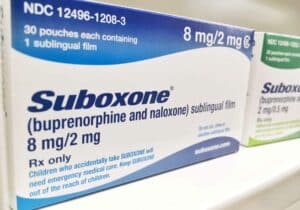The issue of teen substance abuse can significantly impact your child’s life. Learn effective ways to guide your teenager towards healthy decisions and steer them away from using harmful substances.
The adolescent brain is undergoing a critical phase of development, with an emphasis on seeking rewards and embracing risks, unlike the more mature adult brain. Simultaneously, teenagers strive for greater independence as they explore and shape their identities.
This balancing act presents a complex challenge for parents to navigate.
When teens experiment with drugs and various substances, they jeopardize their well-being and safety. The teenage brain is especially susceptible to being rewired by substances that excessively stimulate the brain’s reward circuits.
You can play a crucial role in preventing teen substance abuse by initiating conversations with your teenager about the consequences of substance use and the significance of making positive choices.
Understanding the Motivations Behind Teen Substance Abuse
Several factors contribute to teen drug abuse and misuse. Your teen’s personality, family dynamics, and their comfort level with peers all play roles in their choices.
Common risk factors associated with teen substance abuse include:
- A family history of substance abuse.
- Mental or behavioral health conditions like depression, anxiety, or attention-deficit/hyperactivity disorder (ADHD).
- Tendencies towards impulsive or risk-taking behavior.
- Past traumatic experiences, such as witnessing accidents or experiencing abuse.
- Low self-esteem or feelings of social isolation.
Often, teens initiate substance use in social settings, especially when influenced by peers.
Among the first substances teens might experiment with are alcohol and nicotine or tobacco. These substances, being legally available to adults, can seem less risky to teens, despite their actual dangers.
Adolescents naturally desire to fit in with their peers, which can lead them to emulate substance-using friends. Additionally, they may turn to substances as a means to boost their confidence in social situations.
If the friends they associate with are older, teens might find themselves in more hazardous situations than they are accustomed to. In such cases, adult supervision might be lacking, or younger teens might rely on peers for transportation.
Teenagers might also resort to substance use as a coping mechanism for loneliness or stress, using substances to temporarily escape from their emotions.
Curiosity is another driving factor, leading some teens to try substances out of a desire to rebel or challenge established family rules.
For some adolescents, a sense of invincibility prevails, blinding them to the potential consequences of their actions.
Consequences of Teen Drug Abuse
Teen substance abuse can lead to various negative outcomes, including:
- Substance dependence, which heightens the risk of developing a substance use disorder.
- Impaired judgment that affects personal and social interactions.
- Engagement in risky sexual behavior, leading to unsafe sex practices and unintended pregnancies.
- Aggravation or increased risk of mental health disorders, such as anxiety and depression.
- Compromised driving skills, endangering the teen, passengers, and other road users.
- Decline in school performance, resulting in poorer grades, attendance, and overall academic experience.
Health Impacts of Substance Abuse
Teens might experiment with a range of substances, including legal ones like alcohol and tobacco, and even prescription medicines not prescribed to them. They might also explore performance-enhancing substances ordered online or household items containing intoxicating chemicals. In some cases, illicit drugs like cocaine and methamphetamine come into play.
The potential health consequences of substance abuse are severe and encompass:
- Cocaine, associated with risks of heart attacks, strokes, and seizures.
- Ecstasy, which can lead to liver and heart failure.
- Inhalants, causing damage to the heart, lungs, liver, and kidneys with prolonged use.
- Marijuana, impairing memory, learning, problem-solving, and concentration. It also carries risks of later-life psychosis and increased likelihood of depression and suicide for those with underlying psychiatric disorders.
- Methamphetamine, linked to psychotic behaviors with long-term or high-dose use.
- Opioids, posing the danger of respiratory distress or fatal overdose.
- Electronic cigarettes (vaping), with a higher likelihood of subsequent smoking or marijuana use. Vaping can expose the lungs to harmful particles and potentially damaging chemicals.
Engaging in the Conversation about Teen Substance Use
As a parent, you will engage in multiple conversations with your teenager regarding drug and alcohol use. When initiating such discussions, select a comfortable setting where both you and your teen can converse openly. Choose a time when interruptions are unlikely, necessitating a temporary break from phone usage.
Recognize when not to engage in conversation as well. If emotions are running high or tensions are palpable, postponing the discussion is wise. When you lack the necessary answers, inform your teen that you will address the topic at a more suitable moment.
Additionally, refrain from discussing substance use with a teen who is intoxicated, waiting until they have sobered up.
To foster effective dialogue about substances:
- Encourage your teen to share their viewpoints. Avoid lecturing and instead create an environment where your teen feels comfortable expressing their thoughts and asking questions without fear of reprisal.
- Highlight reasons to avoid substance use. Steer clear of scare tactics, focusing instead on how drug use can impact areas important to your teen, such as sports, driving, health, or appearance.
- Analyze media influence. Address the portrayal of drug use in social media, TV shows, movies, and songs. Encourage your teen to critically evaluate the messages they encounter.
- Brainstorm resistance strategies. Collaborate with your teen to develop strategies for declining offers of substances from peers.
- Be prepared to discuss your own experiences. If your teen inquires about your history of drug use, including alcohol, decide in advance how you will respond. Explain your choices, whether to abstain or partake, and what you learned from those experiences.
Additional Preventive Measures for Teen Drug Abuse
Consider implementing additional strategies to prevent teen substance abuse:
- Stay informed about your teen’s activities. Be aware of their whereabouts and encourage their participation in adult-supervised activities.
- Establish clear rules and consequences. Communicate family rules, such as leaving events involving substance use and avoiding rides with drivers who are under the influence. If rules are broken, ensure consistent enforcement of consequences.
- Understand your teen’s social circle. Recognize the influence of your teen’s friends; if they engage in substance use, there might be pressure on your teen to follow suit.
- Monitor prescription drugs. Keep track of all medications, prescription and over-the-counter, in your home.
- Offer support. Provide praise and encouragement for your teen’s achievements, as a strong bond between you and your teen can discourage substance use.
- Set a positive example. If you consume alcohol, do so responsibly. Adhere to prescribed medication guidelines. Refrain from using illicit substances.
Recognizing Signs of Teen Drug Abuse
Detecting teen substance abuse requires keen observation. Differentiating normal adolescent behavior from potential drug use can be tricky, but parents can be proactive by initiating conversations to understand the situation.
Signs indicating potential teen drug abuse include:
- Decline in academic performance
- Bloodshot eyes
- Unexplained laughter
- Loss of interest in once-enjoyed activities
- Neglected personal hygiene
- Deterioration in appearance
- Avoidance of eye contact
- Frequent hunger or cravings
- Smell of smoke on breath or clothes
- Secrecy
- Excessive fatigue
- Missing curfew
Initiating an open conversation is pivotal if drug use is suspected. Sadly, one out of five parents who suspect teen substance abuse avoid intervening.
The key to initiating communication is asking questions with empathy and understanding.
Parents can start with direct yet non-threatening questions. Simple queries like “Have you been using drugs or alcohol?” or “Have you been offered drugs lately?” can spark dialogue.
Reacting appropriately to a teen’s admission or denial of drug use is as vital as asking the right questions.
If a Teen Confesses to Drug Use:
Parents should remain composed upon learning about their teen’s drug use. An excessive reaction might discourage open discussion. Encouraging teens to talk is crucial to understanding if drug use is an isolated incident or an escalating concern.
Parents should express their care for their child’s well-being and future. A supportive environment increases the likelihood of teens seeking help or halting further drug experimentation.
If a Teen Denies Drug Use:
It’s possible for teens to deny drug use. Reassuring them that their well-being is the priority helps build trust.
If denial persists, parents can explore home drug tests to address concerns. Additionally, therapists, pediatricians, and addiction specialists can aid in identifying any potential drug-related issues.
Seeking Help for Teen Substance Abuse in Chattanooga, TN
If you suspect or have evidence of your teen’s involvement in substance use:
- Devise a plan of action. Uncovering substance use or suspicions can evoke strong emotions. Prior to addressing your teen, ensure you and any other caregivers are prepared. Set clear goals for the conversation and anticipate various reactions from your teen.
- Initiate a conversation. Early intervention is crucial; casual experimentation can escalate to excessive use or addiction, leading to accidents, legal complications, and health issues.
- Promote honesty. Approach the topic calmly, expressing genuine concern. Share specific observations that raise your suspicion, and validate any information your teen provides.
- Focus on behavior, not character. Emphasize the risks associated with substance use without condemning your teen as a person.
- Frequent check-ins. Spend quality time with your teen and inquire about their activities. Stay informed about their whereabouts and engage in conversations about their experiences.
- Seek professional assistance. If you suspect your teen is using substances, reach out to a healthcare provider or counselor for guidance.
It’s never too early to initiate discussions about substance abuse with your teen. The conversations you have today can shape their future choices towards health and well-being. Take action now to protect your teen from substance abuse. Learn effective strategies and support from experts. Iris Wellness Group offers specialized teen substance abuse treatment in Chattanooga, TN. Your teen’s well-being matters. Gain valuable insights and explore Adolescent IOP support at Iris Wellness Group in Chattanooga, TN. Call us today at 423-460-9766<./p>










